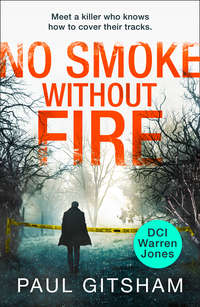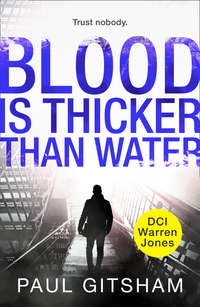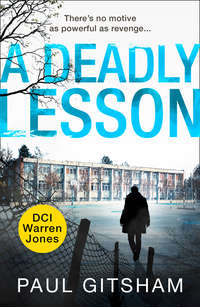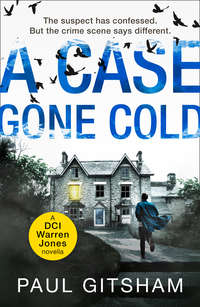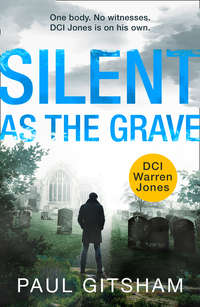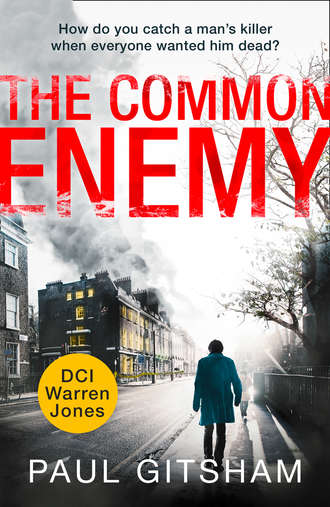
Полная версия
The Common Enemy
‘And you think the BAP are going that way?’
‘Well, quite the opposite, we thought. The BAP were supposedly one of a number of ragtag groups formed out of the old guard who didn’t want to go down the political route. They were proud of who they were. I have to confess, our intelligence on them was pretty slim until recently, much of the information we had on the key players came from their previous associations with more established groups, or through other sources such as criminal records.’
‘So what changed?’
‘The rhetoric on social media, primarily. We were already watching Islamophobic groups, such as Britain First, and when we saw the BAP starting to share followers and content, we started to pay attention.
‘At first, we saw them as a bit of a joke. The usual muddled neo-Nazi rhetoric, wrapped up with so-called British patriotism – a ridiculous contradiction if you think about it too hard, citing Winston Churchill in one breath and praising everything he stood against in the next. Their philosophy varied depending on who was in charge of their Facebook page that day. But when Tommy Meegan became their de facto leader, that all changed.
‘Tommy recognised that Islam is fair game nowadays and he started playing on those fears, whilst also moderating their public image. He understood that it’s about far more than how many troglodytes you can pack in a coach and drive to a rally. It’s about how many retweets or likes you get on social media.
‘Protests against so-called super mosques are just a bone to keep the hardcore onside and stop them pissing off to join somebody else. Tommy Meegan knew that he’d never effect social change that way. But a leopard doesn’t change its spots and he and his brother were nasty, violent pieces of work. Wherever the hell he is now, I’ll bet Tommy Meegan is loving every minute of this; his death could lead to the sort of race war he could only dream of in his lifetime.’
Warren needed to change the subject.
‘So how did you get into this game?’
Garfield pointed to himself.
‘Well, when you’re the colour I am, growing up in Liverpool in the Seventies and Eighties, racial politics is hardly something that passes you by.’ He held out his hand. ‘This sexy brown is the result of a white mum and a black dad.
‘Now I know what you’re thinking: I was brought up by a single mum on a housing estate in Toxteth with no opportunities and no job prospects until I decided to turn my back on a life of crime and either enlist in the army or join the police.’
Warren said nothing; he’d not really given it much thought, but it was obvious Garfield enjoyed telling the story.
‘Actually, it was far worse than that. I was born into a loving family in the Wirral – that’s the posh end of Liverpool – you know, indoor toilets and electric lighting,’ Warren smiled; he’d heard the exact same joke told about parts of Coventry many times. ‘My father was second-generation Jamaican and only retired as a consultant gynaecologist last year. He was the most well-spoken man in the street. My mother is still an education officer for the council and I’ve never heard them exchange an angry word. They sent me to the best school in the area and I went to university in Manchester and got a first in History.’
‘Oh.’ Warren wasn’t entirely sure where this was going.
‘Mum and Dad did their best to shield me from everything of course, but they couldn’t be there in the playground at school, or on the bus on the way home. It got a bit better when I joined the local sixth-form college; I wasn’t the only mixed-race kid anymore and most of the real racists never made it that far.
‘By the time I went to university, I figured the worst of it was over.’ He snorted. ‘The first time somebody threw a stone at me and shouted at me to “fuck off home”, I pledged not to wear my Liverpool shirt in Manchester again. The second time I heard it, I wasn’t wearing my shirt and the penny dropped.
‘I phoned my parents and asked right out how bad the racism had really been when I was a kid. I was shocked by their response. Dad had always said he didn’t like golf, so he didn’t play with the other consultants. In reality, he was never invited. When he took over the running of some clinics, about a dozen patients asked to be transferred, claiming that they weren’t comfortable being examined by a man. Dad’s predecessor had been an old, white guy.
‘I remember our car was always being vandalised. My parents shrugged it off; car crime in Liverpool was an epidemic. I don’t know if I was naive or in denial but I never twigged that ours was the only car in the street that was attacked, and that we were the only non-white family.
‘Nobody was ever racist to Mum’s face, but when I was born she was the only mother in her birthing group who didn’t stay in contact with the rest. At playschool, I was never invited to birthday parties.’
‘So when did you join the police?’
‘After university. I’d joined a couple of protest groups but we never really felt we were achieving anything. Some of my mates wanted to go down the direct-action route – getting stuck in against the BNP – but it didn’t seem the right approach.
‘Then one day we had a talk from a police commander in charge of race relations. Until then, I’d kind of gone along with the idea that the police were almost as bad as the far-right. Full of old-school bigots at the very least willing to turn a blind eye. The Stephen Lawrence inquiry was just wrapping up and the police were being branded as institutionally racist.
‘But I had trouble squaring what I was hearing from this police officer with what I was hearing on the news, and what I was being told by the people I was going on marches with. So in the end I attended one of the force’s recruitment days and decided that whilst the police were far from perfect, it was better to be inside the tent pissing out than outside the tent pissing in.’
‘So how did you end up down here?’
‘Career advancement. I was stuck on sergeant up in Liverpool with no vacancies on the horizon, whilst Hertfordshire was building up its Hate Crime Intelligence Unit. My missus is a schoolteacher and had no particular ties to Liverpool, so we decided to move south.’
The tale sounded familiar to Warren and he said so.
Garfield raised his mug and clinked it with Warren’s. ‘Here’s to Hertfordshire Constabulary and understanding wives!’
Chapter 12
Warren’s conversation with Garfield had given him much to think about. The man’s hypothesis about the BAP’s motivations was intriguing. He looked at his watch. It was already after 9 p.m. The first twenty-four hours were over. Every fibre in his body wanted to go to bed, but he decided to speak to the team one last time before he left. It was a bad habit and his wife would tell him off – that was what email was for, she always said – but experience told him that small, important details that might come out in conversation may not be recorded in an email.
Heading back upstairs, he entered the section of the building allotted to CID. It might have been late on a Sunday evening, but the office was still packed.
Dusk at this time of year was perfectly timed for the candles outside the Islamic Centre to appear on the late-night news. Earlier in the evening Tony Sutton had tuned the wall-mounted screen at the back of the office to BBC News with the sound turned low. Now he turned it up, switching off the garbled automatic subtitles.
The crowd featured in the panning shot had been gathering all afternoon, the pile of flowers and soft toys growing taller by the hour. Numbers had swelled after lunchtime prayers as minibuses from other towns brought in more Muslims to pay their respects. They were soon joined by several dozen members of a local church and a nearby Hindu temple showing solidarity with their Muslim neighbours. By mid-afternoon there were at least three hundred people gathered, the crowd representing a mixture of Muslims and non-Muslims, residents of Middlesbury and those who had travelled from outside. Many carried placards bearing the Twitter hashtag #Justice4Muslims.
‘I don’t know whether to be pleased at the show of unity across so many faith communities or dismayed by the fact that they seem to be united against the police,’ Grayson had muttered before stomping back to his office.
The centre was still an active crime scene and surrounded by tape, however the dozen or so officers policing the crowds that had gathered for the candle-lit vigil were trying to be as unobtrusive as possible. It wasn’t working.
‘Where were you when those animals torched the place?’ yelled a bearded young man into the face of one of the officers standing in front of the entrance to the community centre’s driveway. To her credit, she didn’t so much as flinch. The man was showboating for the TV cameras, who duly obliged by zooming in.
‘Emotions are running high outside Middlebury Islamic Centre, the scene of yesterday’s arson attack that injured eight and left an eighty-nine-year-old and her three-year-old great-grandson fighting for their lives in hospital,’ intoned a grave-looking reporter.
‘Crowds have been gathering all day to pay their respects and send their prayers and best wishes to those hurt in the attack. Middlesbury’s close-knit Muslim community are understandably upset and worried by yesterday’s attack but some are also concerned by the wider implications. Imam Danyal Mehmud leads prayers at the community centre.’ The camera panned back slightly, revealing the young imam. He looked sick.
‘Can you describe how residents are feeling at the moment?’
‘Umm, obviously we are shocked and saddened, and we pray for the recovery of those injured yesterday.’
‘What are your thoughts on calls for the officer in-charge of yesterday’s operation to be suspended? Should there be an inquiry into the decision to remove the guard from the Islamic Centre in favour of policing the town centre?’
Mehmud licked his lips, trying to find appropriately diplomatic language.
‘Ask the police why they are spending so much money protecting white fascists marching through our town centre and won’t lift a finger to help innocent Muslims?’ The young man with the beard had somehow pushed his way in front of the camera again.
The camera-operator nimbly twisted to keep Imam Mehmud in shot whilst blocking the intruder.
‘Obviously, we welcome any inquiry into the events of yesterday…’ started Mehmud.
‘It’ll be a whitewash,’ interrupted the man with beard again. ‘The police don’t care about Muslims. They never have done. They may as well have given a box of matches to those fascist scum.’
‘It should be pointed out that a spokesperson for the British Allegiance Party has categorically denied any involvement in yesterday’s arson attack,’ the journalist interjected hastily.
‘Well, they would, wouldn’t they?’ The unknown bearded man was now centre shot again and it was clear that the reporter had been told to go with him.
Sensing he now had an audience, the man puffed his chest out.
‘The government and the police are quick enough to close down so-called hate preachers but won’t touch groups like the BAP who call for Muslims to be locked up or deported and set fire to their mosques or put bricks through their shop windows.’
Again the reporter interrupted swiftly with, ‘A charge which the BAP deny.’ Her expression froze for a moment, evidently listening to a disembodied producer instructing her to move away from the angry young man before he said something even more defamatory.
‘I believe we can go over to our correspondent Steven, who has been joined by Councillor Lavindeep Kaur.’
The camera cut, but not before the bearded man flashed a handwritten placard bearing ‘#Justice4Muslims’ and started shouting about the ‘fascist police’.
The abrupt change was dealt with smoothly by the experienced correspondent, who wasted no time introducing Councillor Kaur. The councillor expressed her sympathy and support for the victims of the fire and drew attention to the wide variety of people, across all sections of society, who were condemning the violence both in person and online.
‘Do you agree with calls for the suspension of the officer in charge of yesterday’s policing operation, and calls for an independent inquiry?’
Kaur adopted a concerned look. A middle-aged Sikh woman with jet-black hair, she wore a smart black trouser suit, a pale blue scarf her only splash of colour.
‘Far be it for me to suggest how the police should deal with internal disciplinary matters such as these. However, I think the people of Middlesbury – indeed Hertfordshire as a whole – have a right to ask questions about the decisions made yesterday. Decisions that led to an obviously vulnerable target being left unprotected and which ultimately resulted in an innocent toddler and his great-grandmother being seriously injured. The officers in charge of those operational decisions must be prepared to justify them.’
‘Sounds like a bloody lynch mob,’ grumbled Sutton quietly.
On screen the original reporter had ditched the vocal bearded man and found somebody else to interview.
‘Since when have the BBC interviewed masked protestors?’ asked Sutton, aghast. ‘And what about Danyal Mehmud? He barely got a word in edgeways.’
Glimpses of the interviewee beneath her black face mask, bandana and oversized sunglasses suggested a blonde woman of indeterminate age. Her baggy long-sleeved shirt, devoid of any identifying logos, successfully concealed her figure and comparison against the interviewer suggested unexceptional height and build.
‘I’m joined by Kay – not her real name – who claims to have been part of the group of counter-protestors involved in yesterday’s demonstration. My first question is why we should listen to you when you are not prepared to reveal your face?’
The protestor’s polished response suggested the question had been anticipated.
‘Unfortunately, we have no choice. We supposedly live in a free and democratic society, but the state routinely tracks and follows those of us who wish to protest peacefully and exercise our right to free speech.’ The protestor’s accent gave Warren no clues about her upbringing, although he freely admitted to still struggling with accents outside the West Midlands where he’d spent his formative years.
‘Members of the British Allegiance Party who marched yesterday say the same thing, but they are willing to show their faces. Why should you be treated any differently?’
‘We are forced to wear face masks to protect ourselves from reprisals, both from the fascists and the authorities. As we saw yesterday, the police are willing to use excessive force on peaceful counter-protestors to allow the BAP to express their hateful views.’
‘Views that are protected by the same right to free speech that you yourself cite.’
‘Hate speech should not be protected speech. In fact, we have lawyers studying transcripts of the BAP’s address with a view to demanding a prosecution on the grounds of inciting racial hatred.’
‘Much has been made of the police discontinuing the patrol outside the Islamic Centre and how that may have left it open to attack. Could you tell us some of the views that you are hearing about that decision?’
The masked protester straightened her shoulders slightly.
‘Many of us think it is symptomatic of the institutionalised racism that still exists within the police and their widely held view that the concerns and well-being of minorities are less important than those of others.’
There were ripples of disgust from the officers watching the TV. Fortunately, the reporter was too professional to let the slur go entirely unchallenged.
‘That’s a rather sweeping statement.’
‘Kay’ shrugged.
‘How do you answer charges that the actions of the protestors in breaking through the police line meant that the officer-in-charge had no choice but to call in as many reinforcements as possible?’
Again ‘Kay’ shrugged. ‘Yet more evidence that the police’s priorities on Saturday were wrong.’
‘Are you suggesting that the police should have allowed protestors to assault the marchers? After all, there is clear footage of protestors throwing stones and bottles at both the police and the BAP.’
‘Kay’ paused, realising the dangerous waters she suddenly found herself in.
‘At last some balanced journalism,’ somebody muttered from the back of the office.
‘No, what I meant was the police had clearly under-resourced yesterday’s operation, even though it was obvious that there was potential for significant trouble…’
‘Caused in part by the actions of some of the counter-protestors,’ interjected the reporter.
‘… caused by the police not taking seriously the concerns of local residents – from all sections of the community – who have repeatedly said that they did not want fascists marching through their town.’ She paused for breath.
‘If the officer in charge of the operation and his or her superiors had taken the threat posed by the BAP to minorities seriously, they would have deployed enough officers to not only adequately police the march but to protect the targets of this group’s hatred. Not just the Islamic Centre but the synagogue, the Afro-Caribbean centre, meeting halls for the Sikh and Hindu communities and pubs and bars associated with the LGBT community among others.’
‘Anywhere else you’d like us to stand outside?’ grumbled the voice from the back again. Warren decided not to turn around but made a note to address the discontent later.
‘That would be an expensive operation at a time when police budgets are under increasing pressure,’ noted the reporter.
‘You can’t put a price on people’s lives,’ the protestor responded primly. ‘I’m sure that with enough motivation Hertfordshire Constabulary could have policed the event proportionately and cost-effectively.’
‘But doesn’t that require the cooperation of all parties involved?’
‘Of course. We made it clear that we would be counter-protesting at the march; yesterday was entirely predictable.’
‘But was it? According to sources involved in yesterday’s counter-protest, steps were made to conceal the true numbers of protestors planning on turning up to the march.’
For the first time, ‘Kay’ seemed to be lost for words.
‘According to an email seen by the BBC, organisers were told to “keep it quiet” and “not let the pigs get a handle on numbers”. In fact, they were deliberately told to “go old school and keep clear of social media” and make arrangements by word-of-mouth.’
‘Hah! Burned!’ came the voice from the back.
Suddenly on the back foot, ‘Kay’ mumbled something about not having seen the email and being unable to comment. The journalist let her stew for a moment before thanking her for her time and returning to the studio.
‘Could have gone worse, I suppose,’ said Sutton.
‘Well, at least we’re trending on Twitter,’ said Gary Hastings, holding up his smartphone.
‘Is that a good thing?’ asked Warren.
Hastings scrolled for a few seconds and winced.
‘No, not really.’
‘Well, let’s leave Twitter to sort itself out.’ Warren raised his voice slightly, and pointedly addressed the back of the room. ‘I shall repeat the Assistant Chief Constable’s instruction, “stay off social media”.’
A few muttered assents, including from the back corner, were enough to satisfy him.
A brief circuit of the room revealed nothing urgent that couldn’t wait until the following morning and so Warren decided to check his email for anything pressing and finally head home.
The blinking red light on his telephone console told him that he had a voicemail waiting for him.
‘DCI Jones, it’s Andy Harrison here. Check your email, we’ve found the murder weapon. I’ve taken a photo and sent it to you.’ The man’s voice sounded more serious than Warren could ever remember. ‘If it’s what I think it is, the shit’s about to hit the fan big time.’
Warren’s gut tightened as he typed his username and password into his computer then clicked straight to the message from Harrison, with its attached image.
Warren felt as if he’d been punched.
Middlesbury was going to burn.
Chapter 13
‘It’s a Kirpan. A ceremonial knife worn by baptised Sikhs.’
A groan rose from the officers assembled for the 8 a.m. briefing.
‘SOCO have already done a presumptive blood test on the stains on the blade and it’s come up positive. We’ll need a DNA match obviously, and Professor Jordan will be checking it’s consistent with the wound, but I wouldn’t want to bet against it.’
The knife on the screen had a wicked-looking curved blade made from stainless steel. A blade covered in blood. The handle was made of brass with elaborate engravings in Indian script.
‘They’re using acrylate to pull some partial prints off the handle. Hopefully there will be enough reference points for a positive match. They also found a dark blue nylon fibre caught on the edge of the blade. It doesn’t match anything on the victim and they’re trying to exclude contamination from the bin.’
DSI Grayson cleared his throat, taking over from Warren.
‘Confirmation that the leader of the BAP was murdered by an individual from one of our minority communities has the potential to spark rioting or even worse.’
‘I thought the BAP were marching against the new super mosque?’ said a middle-aged sergeant on loan from Welwyn. ‘What would one of them be doing with a Sikh knife?’
‘The BAP are a threat to anyone who doesn’t fit their notion of what modern Britain should consist of,’ answered Warren, uncomfortable with the man’s usage of the tabloid term ‘super mosque’. ‘There were counter-protestors from lots of different sections of the community.’
Grayson took over again. ‘We can all imagine the significance of this find – and the need for discretion.’
He looked around the room, making eye contact with everybody present. ‘I shall repeat what ACC Naseem said yesterday: there will be no contact with the press or the general public without my direct say-so. Any queries are to be directed specifically to the press office. Have I made myself clear?’
There were nods all around the table.
* * *
‘This is bad news, Warren.’ The two men were sitting in Grayson’s office. ‘You were in that meeting yesterday. That was a clear warning about the future of Middlesbury CID if we don’t solve this quickly. It’s personal for all of us.’
Warren remained silent. He’d worked for Grayson for three years, and whilst the two men were hardly close, he could see that the older man needed to get something off his chest.
Grayson stood up, and walked to the window, staring out onto the car park below.
‘Tommy Meegan was an arsehole. Part of me is relieved that he’s dead. But the fallout from this could be devastating.’ The man’s shoulders bunched as he gripped the window ledge.
‘If it turns out that he was killed by a minority, then it’s playing right into the far-right’s hands. Some of these bastards still want a race war, and now they’re the victims. With the power of social media behind them this could give them exactly what they want.’
He turned and Warren saw a rare crack in the man’s usual composure.
‘The Stephen Lawrence murder was a turning point in this country, I truly believe that. Not just the institutionalised racism charges, Lord knows the police have got a lot more work to do on that score, but for the public’s perception of what it can be like to be black in this country. That poor boy was simply waiting for a bus and those animals killed him, just because they could. It shocked our society, Warren, and made people start to see these racist thugs for what they are. The legacy of that killing was to expose the nasty, filthy underbelly that still exists in some quarters.


